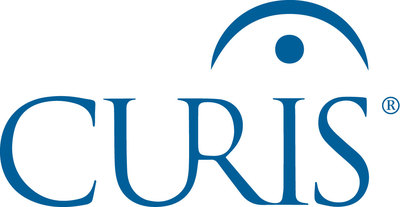Curis Receives FDA Orphan Drug Designation for CA-4948 for the Treatment of AML and MDS
Rhea-AI Summary
Curis, Inc. (NASDAQ: CRIS) announced that the FDA has granted Orphan Drug designation for CA-4948, a small molecule inhibitor targeting IRAK4, primarily for patients with acute myeloid leukemia (AML) and myelodysplastic syndromes (MDS). This designation offers benefits like seven years of market exclusivity and FDA support in clinical trials. The drug has shown broad clinical activity in Phase 1 trials for relapsed or refractory AML/MDS. CEO James Dentzer highlighted this as a significant milestone in addressing rare hematological malignancies.
Positive
- FDA granted Orphan Drug designation for CA-4948.
- CA-4948 is targeting a significant medical need in AML and MDS.
- Positive results in Phase 1 trials for CA-4948.
Negative
- Uncertainties remain regarding the success of CA-4948 in later-stage trials.
- Future funding challenges may impact the research and development of CA-4948.
News Market Reaction 1 Alert
On the day this news was published, CRIS declined 10.27%, reflecting a significant negative market reaction.
Data tracked by StockTitan Argus on the day of publication.
LEXINGTON, Mass., April 19, 2021 /PRNewswire/ -- Curis, Inc. (NASDAQ: CRIS), a biotechnology company focused on the development of innovative therapeutics for the treatment of cancer, is pleased to announce that the U.S. Food and Drug Administration (FDA) has granted Orphan Drug designation for CA-4948, a first-in-class, small molecule inhibitor of IRAK4 and Curis's most advanced therapeutic in clinical development. CA-4948 targets IRAK4-L, the oncogenic isoform of IRAK4 preferentially expressed by the majority of patients with acute myeloid leukemia (AML) and myelodysplastic syndromes (MDS) and has shown broad clinical activity in Phase 1 trials in patients with relapsed or refractory (R/R) AML/MDS.
"We are pleased to take this important next step in unlocking the potential of CA-4948 to offer a safe and transformative, disease-modifying alternative treatment for patients on the AML/MDS spectrum," said James Dentzer, chief executive officer of Curis. "Receiving Orphan Drug designation for CA-4948 in AML and MDS represents a significant milestone in our mission of slowing or preventing the progression of disease in patients with these rare hematological malignancies."
Orphan Drug Designation is granted by the FDA to drugs intended to treat rare disorders that affect fewer than 200,000 people in the U.S. The designation can provide development and commercial incentives, including eligibility for seven years of market exclusivity in the U.S. after product approval, FDA assistance in clinical trial design and exemption from FDA user fees.
About Curis, Inc.
Curis is a biotechnology company focused on the development of innovative therapeutics for the treatment of cancer. In 2015, Curis entered into a collaboration with Aurigene in the areas of immuno-oncology and precision oncology. As part of this collaboration, Curis has exclusive licenses to oral small molecule antagonists of immune checkpoints including the VISTA/PDL1 antagonist CA-170, and the TIM3/PDL1 antagonist CA-327, as well as the IRAK4 kinase inhibitor, CA-4948. CA-4948 is currently undergoing testing in a Phase 1 in patients with non-Hodgkin's lymphoma both as a monotherapy and in combination with BTK inhibitor, ibrutinib. Curis is also evaluating CA-4948 in a Phase 1 trial in patients with acute myeloid leukemia and myelodysplastic syndromes. In addition, Curis is engaged in a collaboration with ImmuNext for development of CI-8993, a monoclonal anti-VISTA antibody, which is currently undergoing testing in a Phase 1a/1b trial in patients with solid tumors. Curis is also party to a collaboration with Genentech, a member of the Roche Group, under which Genentech and Roche are commercializing Erivedge® for the treatment of advanced basal cell carcinoma. For more information, visit Curis' website at www.curis.com.
Forward-Looking Statements:
This press release contains forward-looking statements within the meaning of the U.S. Private Securities Litigation Reform Act of 1995, including, without limitation, statements regarding any expectations of the potential benefits of CA-4948, including its safety, tolerability and/or ability to modify, slow or prevent disease progression; and the potential benefits of having received orphan drug designation for CA-4948. Forward-looking statements may contain the words "believes," "expects," "anticipates," "plans," "intends," "seeks," "estimates," "assumes," "will," "may," "could" or similar expressions. These forward-looking statements are not guarantees of future performance and involve risks, uncertainties, assumptions and other important factors that may cause actual results to be materially different from those indicated by such forward-looking statements. For example, Curis may experience adverse results, delays and/or failures in its drug development programs and may not be able to successfully advance the development of its drug candidates in the time frames it projects, if at all. Curis's drug candidates may cause unexpected toxicities, fail to demonstrate sufficient safety and efficacy in clinical studies and/or may never achieve the requisite regulatory approvals needed for commercialization. Favorable results seen in preclinical studies and early clinical trials of Curis's drug candidates may not be replicated in later trials. There can be no guarantee that the collaboration agreements with Aurigene and ImmuNext will continue for their full terms, that Curis or its collaborators will each maintain the financial and other resources necessary to continue financing its portion of the research, development and commercialization costs, or that the parties will successfully discover, develop or commercialize drug candidates under the collaboration. Regulatory authorities may determine to delay or restrict Genentech's and/or Roche's ability to continue to develop or commercialize Erivedge in BCC. Erivedge may not demonstrate sufficient or any activity to merit its further development in disease indications other than BCC. Competing drugs may be developed that are superior to Erivedge. In connection with its agreement with Oberland Capital, Curis faces risks relating to the transfer and encumbrance of certain royalty and royalty-related payments on commercial sales of Erivedge, including the risk that, in the event of a default by Curis or its wholly-owned subsidiary, Curis could lose all retained rights to future royalty and royalty-related payments, Curis could be required to repurchase such future royalty and royalty-related payments at a price that is a multiple of the payments it has received, and its ability to enter into future arrangements may be inhibited, all of which could have a material adverse effect on its business, financial condition and stock price. Curis will require substantial additional capital to fund its business. If it is not able to obtain sufficient funding, it will be forced to delay, reduce in scope or eliminate some of its research and development programs, including related clinical trials and operating expenses, potentially delaying the time to market for, or preventing the marketing of, any of its product candidates, which could adversely affect its business prospects and its ability to continue operations, and would have a negative impact on its financial condition and its ability to pursue its business strategies. Curis faces substantial competition. Curis also faces risks relating to potential adverse decisions made by the FDA and other regulatory authorities, investigational review boards, and publication review bodies. Curis may not obtain or maintain necessary patent protection and could become involved in expensive and time-consuming patent litigation and interference proceedings. Unstable market and economic conditions, natural disasters, public health crises, political crises and other events outside of Curis's control could significantly disrupt its operations or the operations of third parties on which Curis depends, and could adversely impact Curis's operating results and its ability to raise capital. For example, the COVID-19 pandemic may result in closures of third-party facilities, impact enrollment in clinical trials or impact sales of Erivedge by Genentech and/or Roche. The extent to which the COVID-19 pandemic may impact Curis's business or operating results is uncertain. Other important factors that may cause or contribute to actual results being materially different from those indicated by forward-looking statements include the factors set forth under the caption "Risk Factors" in our most recent Form 10-K and Form 10-Q and the factors that are discussed in other filings that we periodically make with the Securities and Exchange Commission ("SEC"). In addition, any forward-looking statements represent the views of Curis only as of today and should not be relied upon as representing Curis's views as of any subsequent date. Curis disclaims any intention or obligation to update any of the forward-looking statements after the date of this press release whether as a result of new information, future events or otherwise, except as may be required by law.
![]() View original content to download multimedia:http://www.prnewswire.com/news-releases/curis-receives-fda-orphan-drug-designation-for-ca-4948-for-the-treatment-of-aml-and-mds-301271043.html
View original content to download multimedia:http://www.prnewswire.com/news-releases/curis-receives-fda-orphan-drug-designation-for-ca-4948-for-the-treatment-of-aml-and-mds-301271043.html
SOURCE Curis, Inc.








